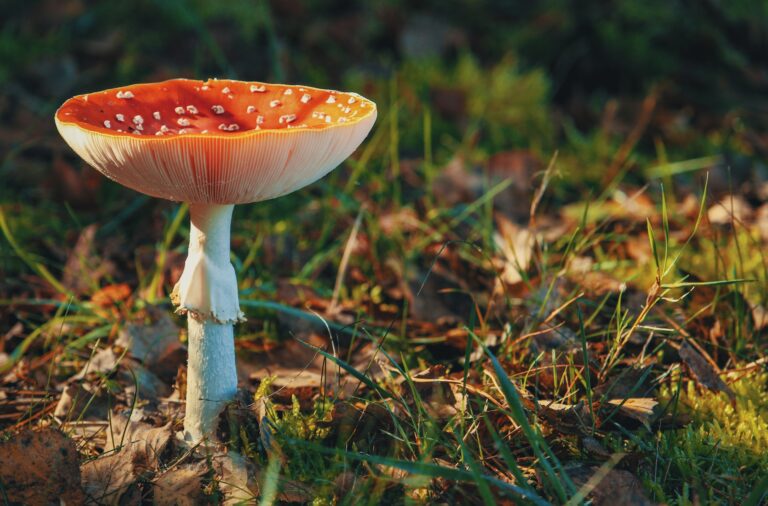In recent years, there has been a growing interest in the use of psilocybin, a naturally occurring compound found in some mushrooms, for its potential therapeutic effects on mental health disorders such as depression and anxiety. As interest in this compound increases, so does curiosity about its legal status and cultural significance in various countries around the world. This article explores the status of psilocybin in Guinea, a country in West Africa.
Is psilocybin legal in Guinea?
In Guinea, psilocybin is considered a controlled substance and is illegal to possess, distribute, or cultivate. This is in line with the majority of countries worldwide, which classify psilocybin as a Schedule I drug under the United Nations Convention on Psychotropic Substances. This means that psilocybin is considered to have a high potential for abuse and no accepted medical use.
What terms are used for psilocybin mushrooms in Guinea?
Psilocybin mushrooms, also known as magic mushrooms, are commonly referred to as champignons magiques in French-speaking countries like Guinea. However, it is important to note that local terms and slang for psilocybin mushrooms may vary between different regions and communities within the country.
Can I grow psilocybin mushrooms in Guinea?
As previously mentioned, the cultivation of psilocybin mushrooms is illegal in Guinea, as it is considered a form of drug production. Growing psilocybin mushrooms, even for personal use, can result in legal penalties, including fines and imprisonment.
The laws regarding psilocybin in Guinea are strict, and penalties for possession, distribution, or cultivation can be severe. Some of the potential consequences for violating these laws include:
- Imprisonment: Depending on the severity of the offense, individuals caught with psilocybin mushrooms in Guinea may face jail time.
- Fines: In addition to imprisonment, those found guilty of psilocybin-related offenses may also be subject to significant fines.
- Confiscation of property: In some cases, authorities may seize assets and property connected to the illegal activities involving psilocybin.
It is important to note that the exact penalties for psilocybin-related offenses in Guinea may vary depending on the circumstances and the discretion of the legal authorities involved.
What are the government laws and links concerning psilocybin in Guinea?
Guinea is a signatory to the United Nations Convention on Psychotropic Substances, which classifies psilocybin as a Schedule I drug. As such, the country’s drug laws align with this international agreement and consider psilocybin to be illegal. To learn more about the specific laws and regulations concerning psilocybin in Guinea, you can consult the following resources:
- The United Nations Convention on Psychotropic Substances: This document outlines the international agreement that Guinea follows in regards to psilocybin and other controlled substances.
- World Drug Report: Published by the United Nations Office on Drugs and Crime, this annual report provides information on drug control policies and trends in countries around the world, including Guinea.
In conclusion, psilocybin is illegal in Guinea, and individuals found possessing, distributing, or cultivating psilocybin mushrooms can face serious legal penalties. It is essential to understand and respect the laws of the country you are in, and to be aware of the potential consequences for engaging in activities involving controlled substances like psilocybin.

I found this article to be immensely informative and helpful as I am planning a backpacking trip through Guinea. The legal implications of psilocybin usage are very pertinent to me as I consider the potential ramifications of partaking in recreational activities. I was particularly impressed by the detailed explication of the current laws in Guinea regarding psychedelic experiences, as well as the insight provided into the potential avenues for further research. Additionally, I appreciate the thoroughness of the author’s discourse on the subject, which has enabled me to better comprehend the legal complexities of psilocybin use.
I recently had the pleasure of visiting Guinea for a much-needed holiday and was surprised to find out that the possession of psilocybin is legal. I have a personal anecdote to share: My brother, a longtime psilocybin aficionado, had been arrested in a neighboring country for the possession of psilocybin mushrooms, and he was facing serious jail time. But when he visited Guinea, the law surrounding the possession of psilocybin was an eye-opening revelation for him. He was able to relax and enjoy his vacation without the fear of being incarcerated. This legal leniency showcases the government’s commitment to protecting the rights of its citizens, as well as offering an additional incentive for tourism.
Very helpful article! I’m an international student in Guinea and this was very informative. Thanks for writing it!
I recently had a friend visit Guinea who wanted to try psilocybin. Unfortunately, we found out that it is illegal and so we had to find other ways to enjoy the country. I’m glad we did because we had a great time! We went swimming, hiking, and even tried some of the local cuisine. It was a great experience and I wouldn’t have changed it for the world.